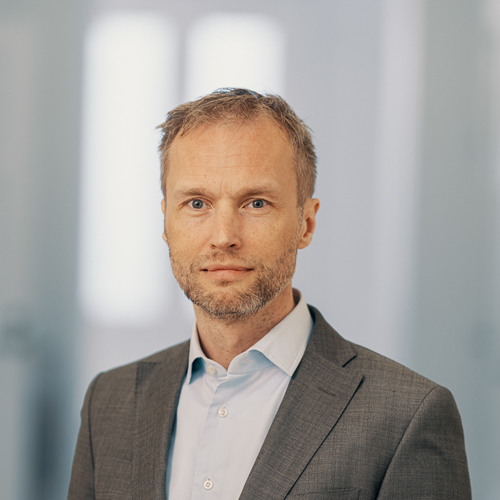The Stockholm stock exchange hosts several unicorn companies. Small-cap stocks provide an opportunity to generate outperformance with high-level ESG.
“If you had to be reborn anywhere in the world as a person with average talents and income, you would want to be a Viking." This citation from The Economist reflects the fact that the Nordics are known around the world for a high quality of life, innovativeness, democracy and stability.
The Nordic countries have succeeded in combining economic efficiency and growth with fair distribution of income and social cohesion. Though the Nordic model is not perfect, the region, which consists of small export-oriented open economies, has produced an outsized number of global companies, a vibrant start-up ecosystem and long-term stock market returns unmatched by those in other parts of the world.
Companies such as Spotify (music streaming), Supercell (mobile gaming), Klarna (online payment services), Skype (internet voice and video chat service) and Mojang (developer of Minecraft) are prime examples of why both private and public investors should be interested in investment opportunities in the region.
Stockholm stock exchange excels in the small cap segment
While Spotify and Skype may have grown to unicorn size inside the walled gardens of venture capital funds unattainable to most investors, there is also a public side, with easier access, to the unicorn nursery. That is the Stockholm stock exchange – and its small cap segment.
Investors in this asset class have reaped some extraordinary results. Carnegie Swedish Small Cap index (a commonly used benchmark) has had an annual return of 16.4% in EUR past 10 years. Such numbers compare favorably with the higher end of returns achieved by investors in venture capital funds – but with the added benefit of daily liquidity.
"The public equity markets in Sweden are surprisingly deep, broad and developed for a smallish European country."
The public equity markets in Sweden are surprisingly deep, broad and developed for a smallish European country. The number of companies listed on the Stockholm stock exchanges exceeds 800 names, of which roughly 50 can be considered large companies with market caps above 10 billion euros. Sweden has also been one of the most active IPO markets in Europe in recent years, with dozens of listings in 2020 alone.
The public market produces lesser-known unicorns
This fertile breeding ground has produced several companies that would be called unicorns by venture capitalists. But since public markets lack the glamour and the global celebrity owners common to VC-land, it’s often not likely that you have ever even heard of these companies.
An example of such an unsung hero is communications platform company Sinch. The name might not ring any bells, though assuming that you have a smartphone, you are very likely to have used Sinch’s services – for example, when getting your boarding pass from an airline via a messaging app. Sinch listed on the Stockholm main market in 2015, and it had a market cap of about 7 billion SEK (700 million EUR) in 2019. In April 2021 Sinch has a market cap of more than 100 billion SEK. At a valuation over 10 billion euros, in VC parlance, it would be that rarest of rare beasts: a decacorn. Actual venture capitalists have taken note: Softbank took a stake in Sinch in 2020.
Another example, but with perhaps some name recognition – at least among those who either ski or bike – is MIPS. MIPS helmets, discreetly recognizable by a yellow dot in the back, are considered (and have proven in tests) to provide the best head protection in accidents. MIPS doesn’t, however, manufacture or sell helmets. Instead, it’s an intellectual property company, licensing its technologies to helmet brands. MIPS listed in Stockholm in 2017 at a market cap of around 1 billion SEK (100 million EUR) and is today valued at a unicorn-worthy 17 billion SEK (1,7 billion EUR).
Matching performance and sustainability: Evli Swedish Small Cap
Passive indexing or algorithmic trading do not dominate the markets in small cap stocks the way they do in large cap stocks. As more investor focus is directed towards larger companies, it leaves an active stock picker more opportunities to generate outperformance in the small cap space.
"As more investor focus is directed towards larger companies, it leaves an active stock picker more opportunities to generate outperformance in the small cap space."
The Evli Swedish Small Cap Fund was established in 2008 and has outperformed its benchmark, the Carnegie Sweden Small Cap index, by 2.5% (as at 29.4.2021) in EUR annually since its inception.
The Nordics have been the forerunners in sustainability. At Evli, ESG has long been integrated into the selection and investment process.
In addition, our Swedish Small Cap also applies additional exclusion criteria, not investing in companies engaged in gambling, weapons manufacturing, alcohol, tobacco or fossil fuels extraction. The fund has lately had a very low carbon intensity of 34 t CO2/$M sales. Morningstar ranks Evli Swedish Small cap in the top decile in sustainability among 730 funds in its global category.
And, in case you are wondering, Evli Swedish Small Cap has been an investor in Sinch and MIPS since 2019.
Evli Swedish Small Cap is managed from Helsinki by Evli’s Nordic Equities team, headed by Janne Kujala, CFA. While his tenure at the helm of Evli Swedish Small Cap is only at its third year, he’s an experienced small cap stock picker and portfolio constructor in the Nordic equity markets.
Janne’s Evli Finnish Small Cap fund (portfolio manager since 2004) has a top-notch performance record, both on absolute and relative terms. It has compounded an average 14% annual return over the past 10 years (date: March 31, 2021), a yearly outperformance of 5 percentage points (with a full fee load) over the benchmark. Since 2010 the fund has had an average five-star rating on Morningstar – i.e., the maximum, a rating which the fund also currently carries.













